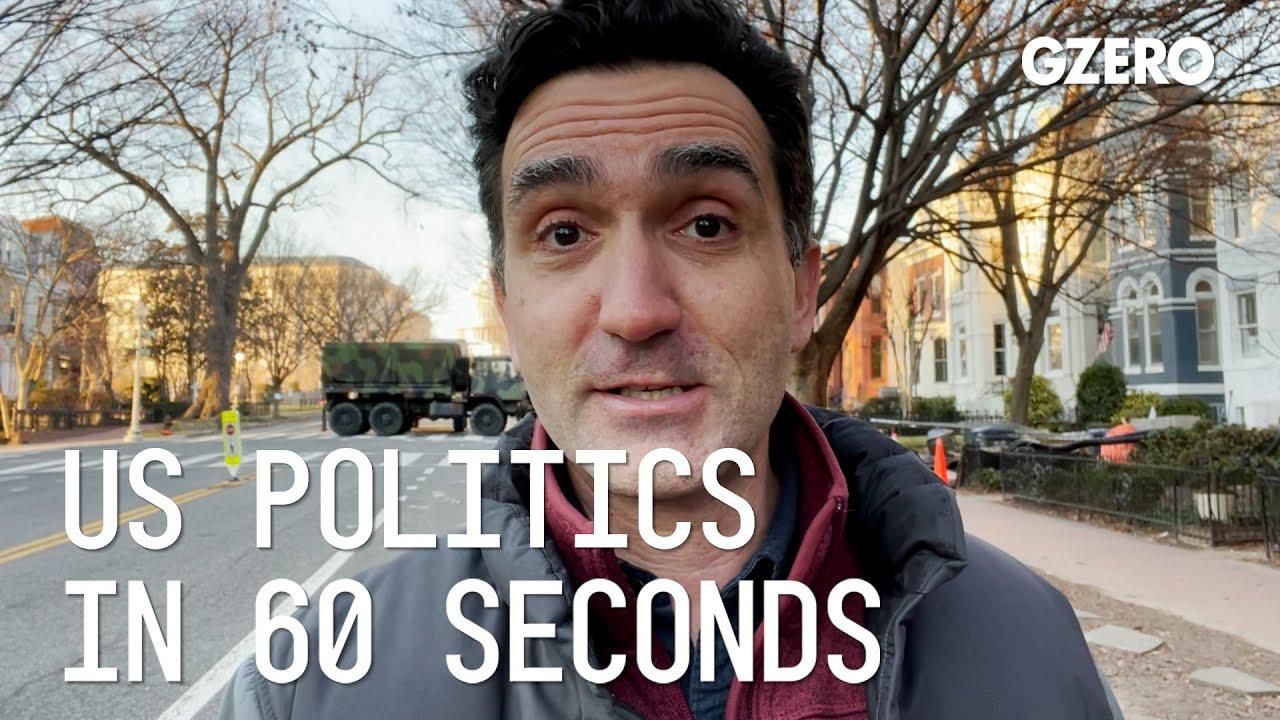US Politics In 60 Seconds
President Biden's first moves will include undoing Trump's legacy

President Biden's First Moves Will Include Undoing Trump's Legacy | US Politics :60 | GZERO Media

Jon Lieber, Managing Director of the United States for the Eurasia Group, shares his insights on what to expect from President Biden's first 100 days:
It's Inauguration Day. And you can see behind me the Capitol Building with some of the security corridor set up that's preventing people like me from getting too close to the building, as Joe Biden gets sworn in as our 46th president. Historic day when you consider that you've got Kamala Harris, the first woman vice president, the first woman of color to be vice president.
So, what do we expect over the next 100 days? Well, Biden's got a lot on his plate. Putting together a COVID response, which is going to include some element of a coronavirus fiscal stimulus to make sure that the vaccine process gets going more smoothly and get more money in the pockets of Americans to avoid further economic dislocation. He also has to get a lot of his cabinet nominees confirmed, which is going to be not impossible to do in a 50-50 Senate, controlled by the Democrats. But it just could take some time to get things going, as inside the Senate, they are still trying to organize the rules to determine how they're going to come to a power sharing agreement.
The final piece of Biden's first 100 days is going to be undoing a lot of Trump's legacy. And that means a number of executive orders aimed at trade, aimed at immigration, aimed at the environment. You're going to see Biden reenter the Paris climate accord right away. And we're going to see a lot of Trump regulations that were done in the last, say, six months or so of his presidency be undone through something called the Congressional Review Act. So, that's going to take up a lot of time.
Probably by the middle of the year, Biden will have most of his personnel in place, he'll have done at least one big fiscal stimulus, and he'll be gearing up for longer term investments in both healthcare and energy infrastructure. So, stay tuned.
Indian Prime Minister Narendra Modi and Canadian Prime Minister Mark Carney struck a series of deals during a meeting in New Delhi on Monday, including a 10-year nuclear energy deal under which Canada will provide India with uranium.
The US and Israel have launched a series of strikes against Iran at a moment when the Islamic Regime is at its weakest. Ian Bremmer spoke with Iran expert Karim Sadjadpour in Munich earlier this month to understand the choices the regime and population are facing.
With US forces building up in the Middle East, Trump is betting military pressure will force Iran to bend. Will this turn into a full-scale conflict?
Are we still talking. #PUPPETREGIME